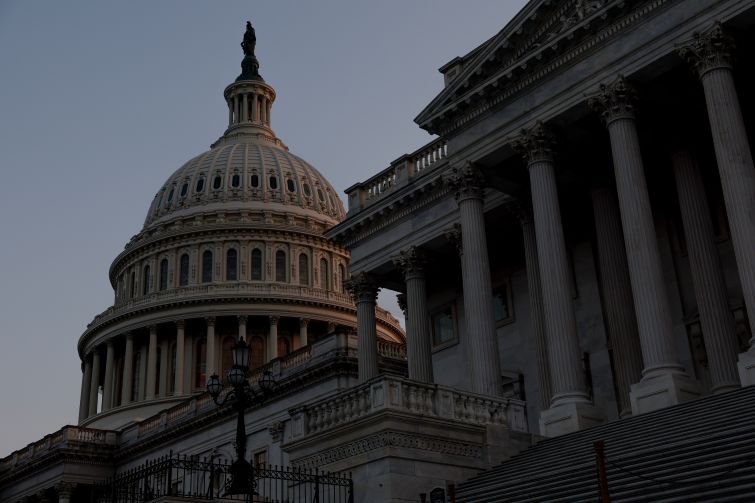Bipartisan Bill Proposes Tax Changes for Retail REITs, Granting Greater Equity Stakes
Share of equity capital REITs can invest in distressed tenants would jump from 10 percent to 50 percent
By Brian Pascus June 6, 2023 2:36 pm
reprints
A bipartisan congressional bill would alter a 1986 tax law and grant real estate investment trusts (REITs) the opportunity to make greater equity investments in their distressed retail tenants.
Republican Rep. Darin LaHood and Democratic Rep. Brad Schneider together reintroduced the Retail Revitalization Act into the House Ways and Means Committee last week, after having first introduced the bill in February 2021. The two Illinois congressmen are gambling that a Republican-controlled House will advance a bill that was stymied under the previous Democrat-led chamber in 2021 and 2022.
The bill would increase the share of equity investments a REIT can have in a distressed tenant from 10 percent to 50 percent, and increase that same equity investment capacity from 10 percent to 30 percent for all non-distressed tenants. The bill would also change rules related to limitations on retail space that REITs can rent to their taxable subsidiaries.
The reintroduction of the bill comes as the retail industry continues to endure the impact of pandemic-related labor shortages, higher interest rates and the growth of e-commerce. Bed Bath & Beyond, which had 1,100 stores in 2010, filed for bankruptcy on April 23. Ten major retailers have already filed for bankruptcy in 2023, including David’s Bridal and Party City, while 2020 and 2021 saw bankruptcy filings by Neiman Marcus and J.Crew.
David Auerbach, managing director of Armada ETF Advisors, an asset manager specializing in REITs, said that the proposed legislation would immediately favor large retail REITs like Simon Property Group, which acquired JCPenny for $800 million and Brooks Brothers for $325 million in 2020, after the popular clothing stores each filed for bankruptcy. Brookfield (BN) Property Group was a partner on both purchases.
“I look back on what Simon did during COVID and how they scooped up distressed retailers. Think about how it would change if they could have bought even more equity stakes if the rules had changed then,” Auerbach said. “It’s got to be a huge boon to the guys who have the capital and the means to go out and employ it.”
Jeffrey DeBoer, president and CEO of The Real Estate Roundtable, an industry trade group, has supported the legislation and emphasized that retail bankruptcies have negative consequences for employees, surrounding businesses, and local communities wherever they occur. He said the proposed legislation would “save jobs, increase local tax revenue,” and improve the foundation for further economic growth for retailers across the country.
“The Retail Revitalization Act would reform an outdated section of our tax code that currently prevents the commercial real estate industry from stepping forward and deploying its own capital to solve significant economic challenges,” DeBoer said in a statement. “This bipartisan legislation to allow REITs to invest more heavily in their tenants is exactly the type of cost-effective, common sense measure that everyone can and should support.”
Some critics of the proposed legislation — notably the AFL-CIO — have argued that increasing the equity percentage REITs can put into business operations of their real estate investments effectively turns their ownership structure into a tax loophole.
As passive income investment vehicles, REITs are exempt from corporate real estate taxes based on the theory that their income comes not from operating the business, but from investing in it. REITs act as both investment vehicles and as landlords who lease space and collect rent on their properties, and distribute that income as dividends to shareholders. Their tax structure requires them to pay a minimum of 90 percent of taxable income to shareholders as dividends each year.
In a December 2022 letter to congressional leadership, AFL-CIO Director of Government Affairs William Samuel argued the tax change would turn REITs into “an all-purpose invitation to tax evasion by any business that uses real estate,” and said the bill would also weaken workers’ rights.
“This bill would create a large and ill-defined loophole in our corporate tax code that would likely benefit some of our country’s largest and most profitable companies at the expense of smaller main street competitors and the public,” Samuel said.
The bill remains to be voted on in the House Ways and Means Committee.
Neither LaHood nor Schneider responded to requests for comment.
Brian Pascus can be reached at bpascus@commercialobserver.com


